 June 2024 in “Australasian Journal of Dermatology”
June 2024 in “Australasian Journal of Dermatology” Tofacitinib is safe and effective for treating moderate-to-severe alopecia areata.
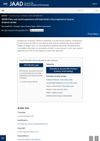 September 2023 in “Journal of The American Academy of Dermatology”
September 2023 in “Journal of The American Academy of Dermatology” Baricitinib shows promise in treating severe hair loss.
19 citations,
August 2019 in “Dermatologic therapy” Janus kinase inhibitors show promise for treating alopecia areata but need more research for confirmation.
 12 citations,
December 2022 in “JEADV. Journal of the European Academy of Dermatology and Venereology/Journal of the European Academy of Dermatology and Venereology”
12 citations,
December 2022 in “JEADV. Journal of the European Academy of Dermatology and Venereology/Journal of the European Academy of Dermatology and Venereology” New oral treatments for adult hair loss show promise, especially JAK inhibitors, with mild side effects.
11 citations,
June 2019 in “Journal of dermatology” New medicines that block a specific pathway are showing promise for treating severe hair loss but need more testing for safety and effectiveness.
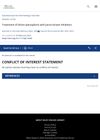 February 2024 in “Australasian journal of dermatology”
February 2024 in “Australasian journal of dermatology” Janus kinase inhibitors may help treat lichen planopilaris.
 November 2023 in “The journal of investigative dermatology/Journal of investigative dermatology”
November 2023 in “The journal of investigative dermatology/Journal of investigative dermatology” Oral Janus kinase inhibitors may be an effective treatment option for lichen planopilaris with some risk of increased cholesterol and liver enzyme levels.
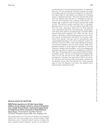 June 2023 in “British journal of dermatology/British journal of dermatology, Supplement”
June 2023 in “British journal of dermatology/British journal of dermatology, Supplement” Patients with alopecia areata face challenges accessing Janus kinase inhibitors, but some see positive results.
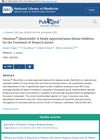
Olumiant® (Baricitinib) is effective for treating hair loss from Alopecia Areata.
April 2020 in “The FASEB journal” Poncirin is a promising inhibitor of Janus Kinase 3, potentially better than tofacitinib.
January 2018 in “Figshare” Ruxolitinib and tofacitinib are effective and safe for treating severe alopecia areata.
January 2019 in “프로그램북(구 초록집)” Both tofacitinib and ruxolitinib are effective and tolerable for treating alopecia areata.
96 citations,
December 2015 in “JAMA dermatology” Topical Ruxolitinib may safely treat severe hair loss.
19 citations,
April 2019 in “Veterinary dermatology” Oclacitinib effectively treated a skin condition in dogs that didn't respond to other immunosuppressants.
 9 citations,
October 2021 in “International Journal of Dermatology”
9 citations,
October 2021 in “International Journal of Dermatology” Tofacitinib is effective and safe for treating severe hair loss in a Saudi population.
8 citations,
July 2020 in “Dermatologic Therapy” Tofacitinib may effectively treat folliculitis decalvans.
 5 citations,
January 2022 in “Dermatology Reports”
5 citations,
January 2022 in “Dermatology Reports” Tofacitinib treatment for hair loss may worsen acne.
 5 citations,
March 2019 in “Dermatologic Clinics”
5 citations,
March 2019 in “Dermatologic Clinics” New treatments for hair loss show promise, but require more research on long-term effects and proper dosing.
 1 citations,
June 2022 in “JAMA”
1 citations,
June 2022 in “JAMA” Baricitinib, a medication taken by mouth, was effective in regrowing hair for people with severe hair loss.
 June 2024 in “International Journal of Dermatology”
June 2024 in “International Journal of Dermatology” Upadacitinib may effectively treat resistant lichen planopilaris.
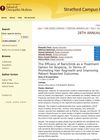
Baricitinib effectively promotes hair regrowth in severe alopecia with minimal side effects.
 April 2024 in “Expert opinion on investigational drugs”
April 2024 in “Expert opinion on investigational drugs” JAK inhibitors are safe and effective for treating moderate-to-severe alopecia areata.
 September 2023 in “Journal of the American Academy of Dermatology”
September 2023 in “Journal of the American Academy of Dermatology” Topical tofacitinib helped a man with severe scalp condition after other treatments failed.
 May 2023 in “Elsevier eBooks”
May 2023 in “Elsevier eBooks” Systemic immunotherapies are used for immune-related hair loss but not usually for genetic hair loss, unless the patient has both conditions.
 April 2023 in “The journal of investigative dermatology/Journal of investigative dermatology”
April 2023 in “The journal of investigative dermatology/Journal of investigative dermatology” Intravenous methylprednisolone helped over half of alopecia areata patients regrow hair, but many relapsed.
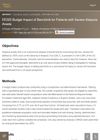 June 2022 in “Value in Health”
June 2022 in “Value in Health” Adding Baricitinib for severe alopecia areata will have a small impact on a health plan's budget.
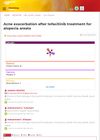 October 2021 in “Dermatology Reports”
October 2021 in “Dermatology Reports” Tofacitinib, a hair regrowth treatment, may worsen acne.
 January 2016 in “Chemistry & Industry”
January 2016 in “Chemistry & Industry” Two drugs, tofacitinib and ruxolitinib, may help regrow hair by activating hair follicles.
April 2019 in “The journal of investigative dermatology/Journal of investigative dermatology” Blocking JAK1 or JAK3 helps reverse hair loss in a mouse model of alopecia areata.
3 citations,
August 2021 in “Veterinary dermatology” New treatments for hair loss are emerging as we better understand hair growth and its genetic causes.




















